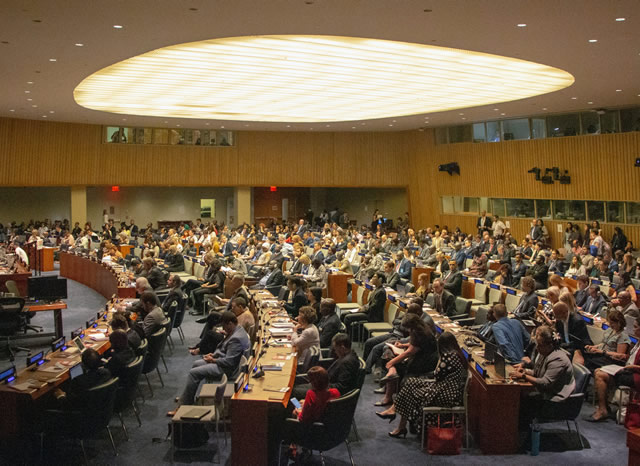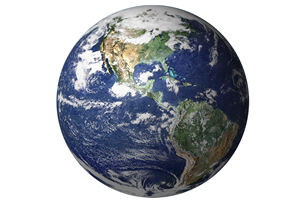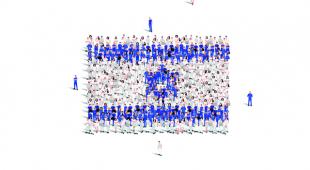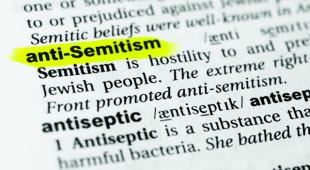
Restless Nations Jostling to Usher in the 10 Kings
Given the state of geopolitical affairs today, it is key to see that groups of countries must come together to assemble sufficient, common-minded heft to affect their agendas. Why? Because there is no longer a common global consensus, as we will show. Power is being spread more widely.
Globalism is on the ropes. Critically, this long-running trend is beginning to break up in our time. This is a fascinating and momentous development for many reasons. However, this writer believes the most notable one is that it reveals the birth pangs of minilateralism. What is this? It is the geopolitical fragmentation of national relationships that (we believe) will eventually set up the emergence of the 10 Kings.
This group of kings is mentioned or pictured in the Bible a total of 10 times. They must, therefore, be an important end-time actor. And indeed this is the case.
The West, Downhill and Fading Out
Why the global tumult … and why today? For one, countries are becoming less cooperative. They are driven by self interest, non-aligned objectives, hatred, and quixotic human actions. This makes for much strife and volatility. And since the world is secular and evil, at least some countries will gladly aspire to help fulfill the Antichrist’s agenda.
As mentioned, most interesting of all is this connection: It sets up the world for the 10 Kings. Minilateralism dovetails with the 10 kings mentioned in Scripture—a small group of countries that under the aegis of the Antichrist, successfully aggregates sufficient power to control the entire world.
In our view, this development is unfolding before our very eyes … is at the very doorstep. The 10 kings must emerge first, before the Antichrist is on the scene. At that time, the 10 kings give their power to the Antichrist. “The […] ten kings […] have one purpose and will give their power and authority to the beast” (Revelation 17:12-13). And then, “The beast […] was given authority over every tribe, people, language and nation” (Revelation 13:5-7). He must have enough power and authority so that “no one will be able to stand against him” (Daniel 11:16).
There are plenty of reasons to beware, but this one particularly so. Quickness! The 10 kings are not in service for very long. For example, no sooner have the 10 kings allied with the Antichrist, that three of them are uprooted according to Scripture (backstabbed or betrayed?—Daniel 7:24). Events will unfold rapidly, as “he must remain for only a little while” (Revelation 17:10b).
A common question therefore is this: Are the 10 Kings revealed before or after the Rapture? We can’t be sure. But suffice it to say that the preparations or events that signal the advance of the 10-King association will be difficult to keep hidden. To the contrary, we think. The tumultuous geopolitical chafing and shifting will be hard to miss in the New York Times or Washington Post. Following, we provide some
evidence for this view.
Restless Nations
Fragmentation of geopolitical affairs can be seen everywhere.
Recently, Narendra Modi, Prime Minister of India and host of the recent meetings of the Group of 20 (G20) in New Delhi, welcomed the attendees with a Sanskrit slogan, “Vasudhaiva Kutumbakam.” Translated, this means, “The world is one family.”
The emphasis of the conference was global unity. The reality, however, is quite the opposite: The world is riven with rancor and strife … and increasingly so.
Since India took over the presidency of the G20 in December 2022, nearly two dozen ministerial meetings have failed to nail down a single communiqué. Usually, meetings of these major conferences always produce a report of agreed upon resolutions. The world is obviously not in a peaceful state.
Clearly, the New Delhi G20 meeting showed how significantly global power institutions are fragmenting. Consider that two major members, Xi Jinping (General Secretary of the Chinese Communist Party) and Vladimir Putin (President of Russia), skipped the meeting entirely.
Also note the United Nations General Assembly of 2023. For most of the UN’s nearly eight decades of existence, meetings were always the high point for its participants, when world leaders met to argue over the pressing causes of the day. Apparently, no longer. Despite serious “world” issues such as war in Europe, a spate of coups in Africa, natural disasters blamed on climate change, and friction between China and America, only one leader (France) of the five permanent UN members that wield veto votes, was in attendance.
Next, we provide more evidence of global fragmentation. Observe the World Trade Organization. It officially commenced operations in 1995, replacing the General Agreement on Tariffs and Trade (GATT) that had been established in 1948. It has been a long time since any new initiative of this organization has been ratified by its members. Its operations have effectively been blockaded by the US. (Regional trade agreements, however, have moved forward sporadically, but there have been no “global” initiatives.) This is globalism today—unwound, toothless and frustrating.
A major catalyst for anti-globalism initiatives is a high dissatisfaction with the West … the superpowers … and rich-country bullies (as other, less powerful nations may see them). Nations such as the US and other wealthy countries still dominate (i.e., NATO and the G20 … and others). As such, failed progress for global unity is spurring the efforts of non-aligned countries. They are forming new organizations that are intended to disrupt or weaken the West. Some of the more prominent of these are listed next.
A new contender making fast tracks is the Asian Infrastructure Investment Bank (AIIB). It is a multilateral development bank and international financial institution, which aims to collectively improve economic and social outcomes in Asia. Already, it is the world’s second largest multilateral development institution. Headquartered in Beijing, China, the bank currently has 106 members, with 14 prospective members from around the world (even including Canada).
 Next, we review the Non-Aligned Movement (NAM). It is a forum of 120 countries that are not formally aligned with or against any major power bloc … so far. After the United Nations, it is the largest grouping of states worldwide. The countries of the Non-Aligned Movement represent nearly two-thirds of the United Nations’ members and contain 55% of the world population.
Next, we review the Non-Aligned Movement (NAM). It is a forum of 120 countries that are not formally aligned with or against any major power bloc … so far. After the United Nations, it is the largest grouping of states worldwide. The countries of the Non-Aligned Movement represent nearly two-thirds of the United Nations’ members and contain 55% of the world population.
There are many more signs of fragmentation around the world. Consider two other contenders: first, the African Union (AU), and second, the Shanghai Cooperation Organization (SCO). The AU is an organization of 55 African nations. (Of note, the African Union also became a member of the G20, as did the EU some time ago.) The SCO was initially founded in 2001 by China and Russia. Today, it consists of 8 nations, covering approximately 80% of the area of Eurasia and 40% of the world population.
Not last by any means, we must mention another group of nations that is also rapidly gaining global clout. It is the BRICs countries. Starting with four members in 1995 (Brazil, Russia, India and China), this year it welcomed in six new members, bringing the total to 11 countries. Quoting Wikipedia: “BRICs is a grouping of Brazil, Russia, India, China, and South Africa […] The BRICs nations encompass about 27% of the world’s land surface and 42% of the global population. Brazil, Russia, India and China are among the world’s ten largest countries by population, area, and GDP (PPP [purchasing power parity]), and the latter three are considered to be current superpowers, or potential emerging superpowers.” Already, economists are speculating that this group will eventually be called BRICs Plus 132 … meaning 132 additional members. If so, this will be a powerful group.
By now, the reader will gain a sense of the “restlessness” of nations. Smaller groups and countries are gaining crucial profiles and influence.
Thoughts to Ponder
An interesting phenomenon is unfolding. After almost one hundred years of rapid globalization, international relationships and nation groups are fragmenting as perhaps never before.
What is the agenda? As already mentioned, many nations are rankled with the global institutions (International Monetary Fund, the World Bank, the United Nations, and many others) that are dominating policy and have proven to be inflexible at times. Most of these organizations were launched in the late 1940s (prompted by the horrors of the two World Wars). Already in the early 1950s, counter groups were mobilizing.
What must one conclude, viewing the jostling and positioning of nations today? Globalism is in decline; minilateralism is ascending. Many policymakers are losing patience with the calcification of various agencies and NGOs (non-governmental organizations). The consensus approach no longer works.
All of the above, we believe, foreshadows the emergence of the 10 Kings.
No doubt, many of the candidates for a slot in the 10 King line-up are already in existence today.
Midnight Call - 01/2024










